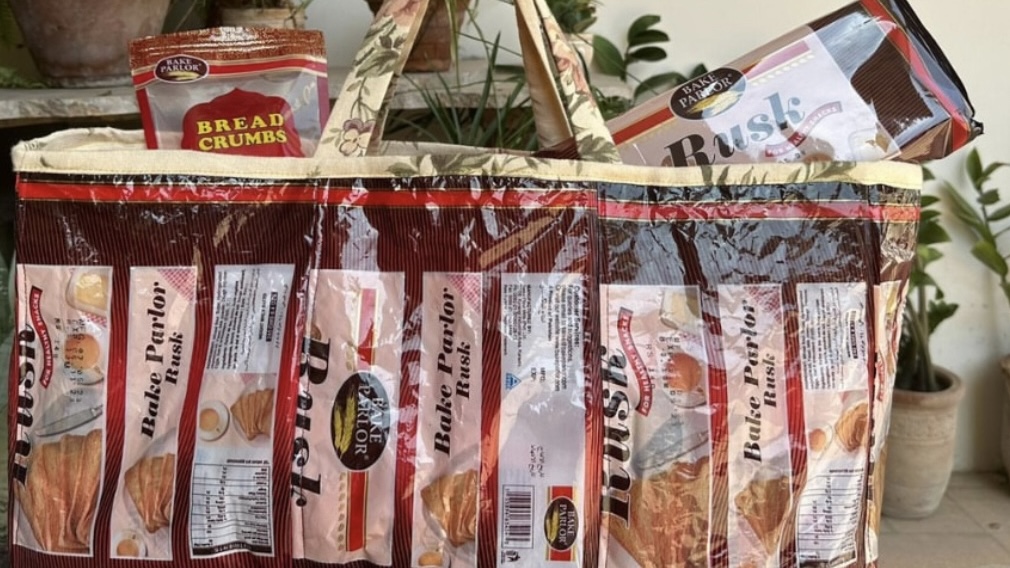
"What happens to our garbage when we throw it away? "I asked my nine-year-old. "Maybe it goes in the ocean. Is that why our beaches are so littered?"
She doesn't know how real and depressing her reply was. The world generates 300 million tons of plastic annually, half of which is single-use. More than 8 million tons end up in our oceans. At this rate, by 2050, our oceans might contain more plastic than fish. Karachi's contribution to this global issue is not insignificant, producing around 12,000 tons of waste daily, 40% of which is left uncollected.
I first met Aimah, a physicist and an avid environmentalist in Code for Pakistan's Karachi Volunteers WhatsApp Group. During one of our weekly online meetings, she introduced me to the concept of upcycling, an intriguing alternative to recycling. Upcycling is particularly concerned with items like snack wrappers and other non-recyclable materials. Aimah has been practicing composting at home and living a low-waste life with her mother for nearly four years. Together, they explore innovative ways to repurpose Karachi's waste.
"Fascinated by the Netherlands, where I pursued my education, I admired how this small country, smaller than Sindh, thrived entrepreneurially, with agriculture as its biggest export."
While studying in Middleburg, Aimah attended a ceremony, the Four Freedoms Awards, hosted by the Roosevelt Foundation, during the height of the Syrian refugee crisis. That year, the award was jointly presented to a Catholic priest, a Muslim imam, and a Protestant pastor. In tandem with her studies, she was engaged in writing, and the event left a significant impact on her.
Aimah went on to intern at the Pakistan National Center of Physics and work with CERN data in Islamabad, her lifelong dream.
Post-graduation, Aimah joined her father's engineering company as a scientist, focusing on designing DC (Direct Current) motors. The level of work was very specialized, and she needed help finding skilled labor. She devised an in-house training program to train and upskill them.
"2020 changed my life. There was a locust crisis in Pakistan during the pandemic. Within four months, we had to design, manufacture, and deliver 40 specialized machines to kill off the locusts while they were young—all in the middle of the pandemic."
Aimah got creative and found a solution within limited resources. Her product ended up winning the government bid.
In 2019, Aimah, who had been practicing zero-waste living for a few years, came across a startup named Code Green. She also ran into TrashIt, another startup that creates organic compost from Karachi's garbage. Building on their knowledge, Aimah began composting at home. Since then, she has been posting actively about these initiatives on her Instagram.
"Many people ask me how journalism, human rights, and social activism fit with particle physics. I don't know, but I am interested in all of it."
As a first step, Aimah switched from regular bags to cloth bags for groceries and specific bags for vegetables. Her mother stepped in to help and encourage Aimah.
"My biggest support was my mom."
After persistent negotiations with a major Karachi grocery store, and an Instagram campaign launched by friends, they successfully advocated for allowing customers to bring their own cloth bags.
Aimah's mother, Uzma, had worked as a volunteer at Al-Furqan School's Shireen Jinnah campus for many years. After a hiatus of two years after the pandemic, she resumed her volunteer work there, only to see mounds of trash piling up in the streets around the school. She wondered how she could incorporate a waste reduction approach in the school to control the trash. This is where the first seeds for Wrap Up were planted. With Aimah's help, she developed a plan to educate the children and teachers at the school about waste reduction and management. They started with the 5 R's: Refuse, Reduce, Reuse, Recycle and Rot. This was the first step towards educating the children on creating a zero-waste community.
While segregating waste at the school, Aimah and Uzma realized no measures were being taken to combat the excessive wrapper waste on the streets. It could not be recycled. Maybe it could be UPcycled—to make something of higher value. Uzma got to work, creating a product, a prototype, to demonstrate possibilities to the children at a special Independence Day assembly being held at the school, using the wrappers she had been saving for over two months.
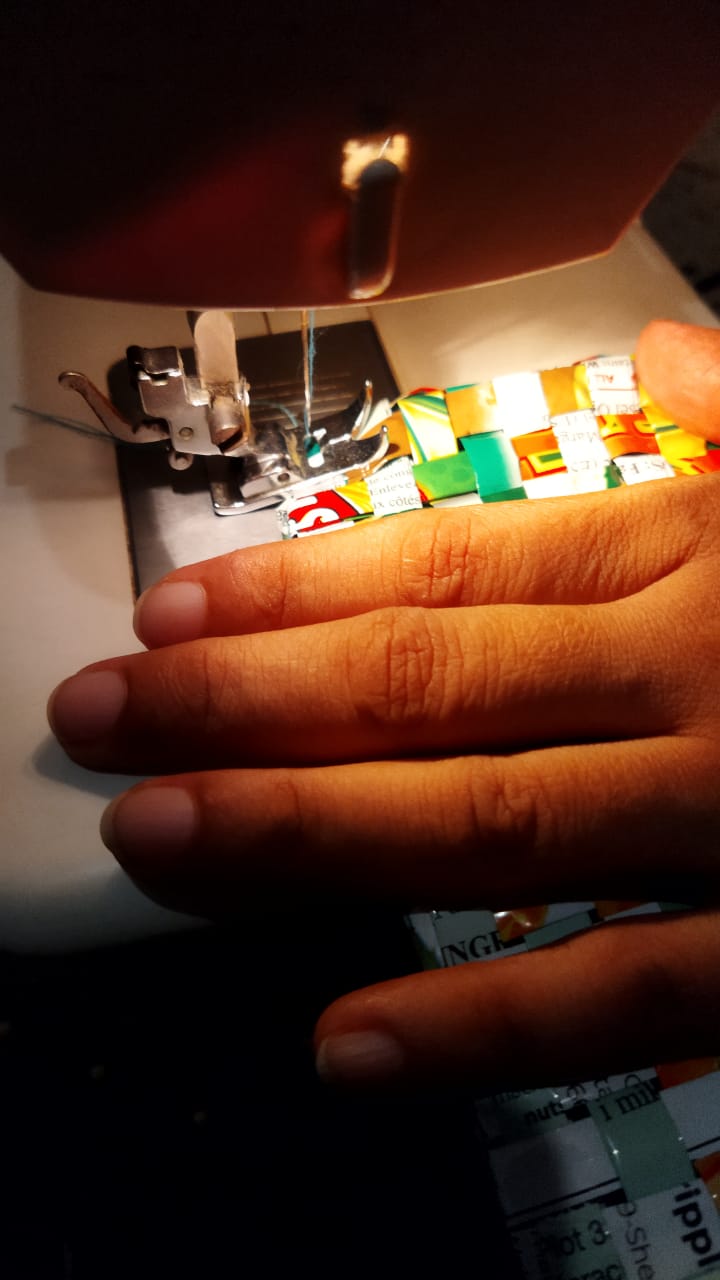
With the help of students and teachers at Al-Furqan, Aimah and Uzma started experimenting and creating different prototypes, engaging students and teachers to turn discarded chip packets and wrappers into fashionable bags and baskets. The bags, ranging from silver wrappers to Oreo cookie and rusk packages, are more than just stylish accessories; they speak of excessive consumption- left on the streets of the metropolis to be dealt with. Creating each bag is a meticulous and time-consuming process, from collection to cleaning, drying, and hand-weaving of wrappers.
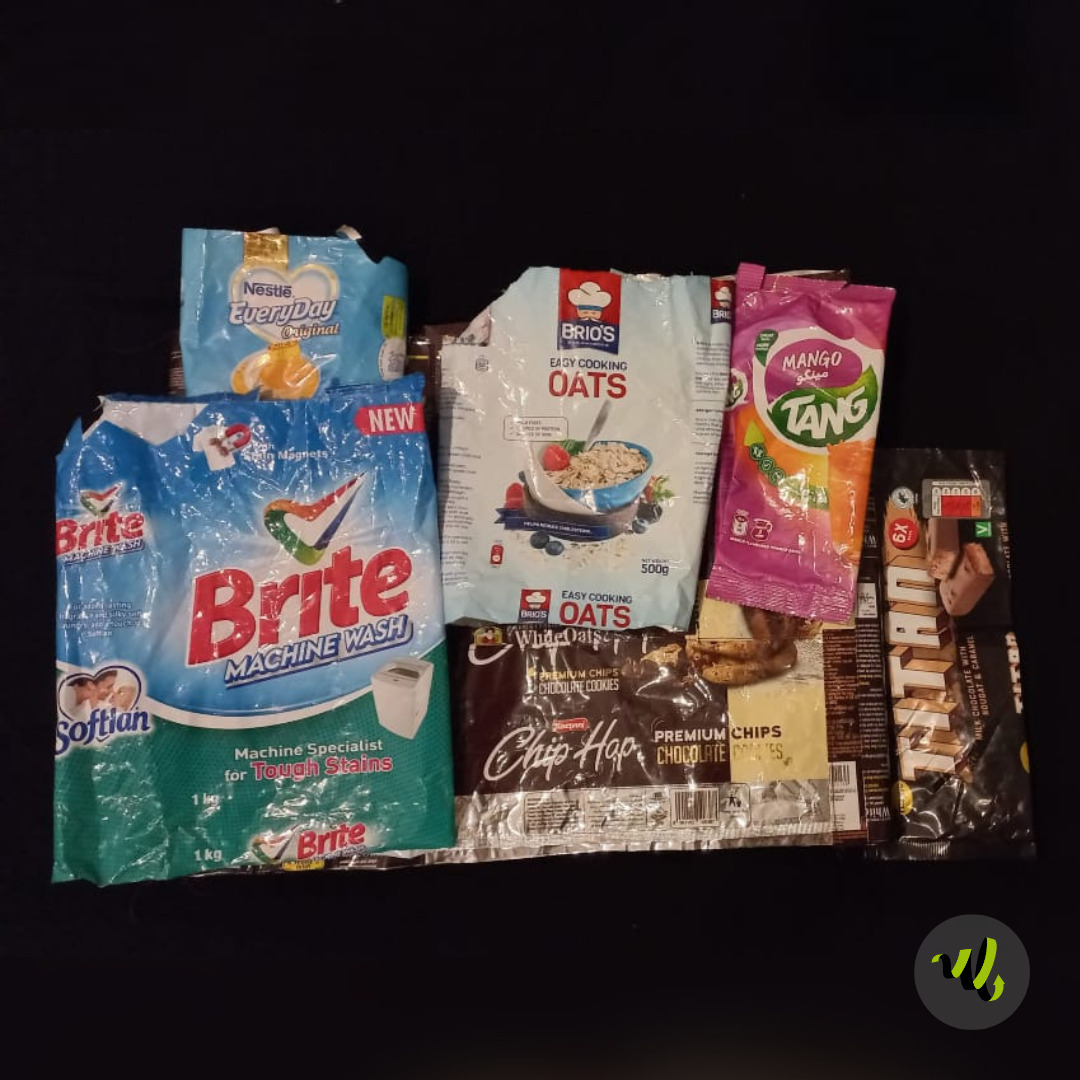
After a successful display at the Al Furqan School events, the mother-daughter duo started showcasing these products at local events. I met Aimah in person at the Crafters Expo in Karachi, an event that promotes locally sourced handmade products. Aimah was busy that day! I spotted a gorgeous silver wrapper weaved bag but, on inquiry, found out that the products were only meant for display purposes and that to own one, I would have to place an order, which would take up to three months. Given that the bag was not just aesthetically gorgeous, it was functional and meaningful, too; I was happy to wait. By then, they had received such a tremendous response to their products that WrapUp was already in motion.
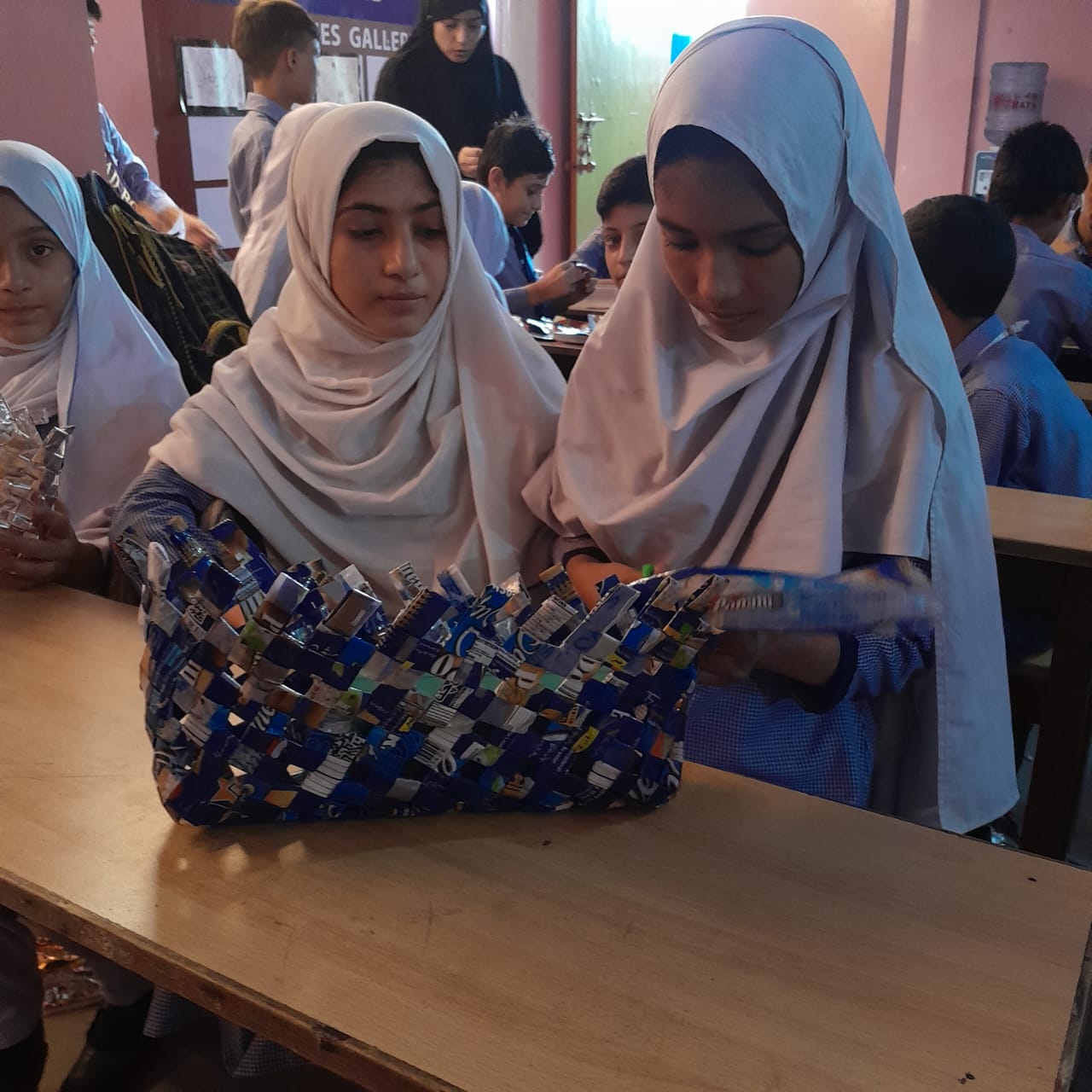
Once the trash around the school got a new life, Aimah thought of more possibilities. If she could divert all the wrappers from ending up in landfills and, at the same time, support women and children from financially disadvantaged backgrounds, this could help transform the garbage on the streets and generate income for underprivileged families at the same time.
The possibilities were endless!
Aimah began looking for more answers. In July of 2023, Aima attended a Code for Pakistan community event, 'Guftugu, ' a civic conversation initiative encouraging communities to discuss pressing issues in their civic space and combine efforts to overcome challenges.
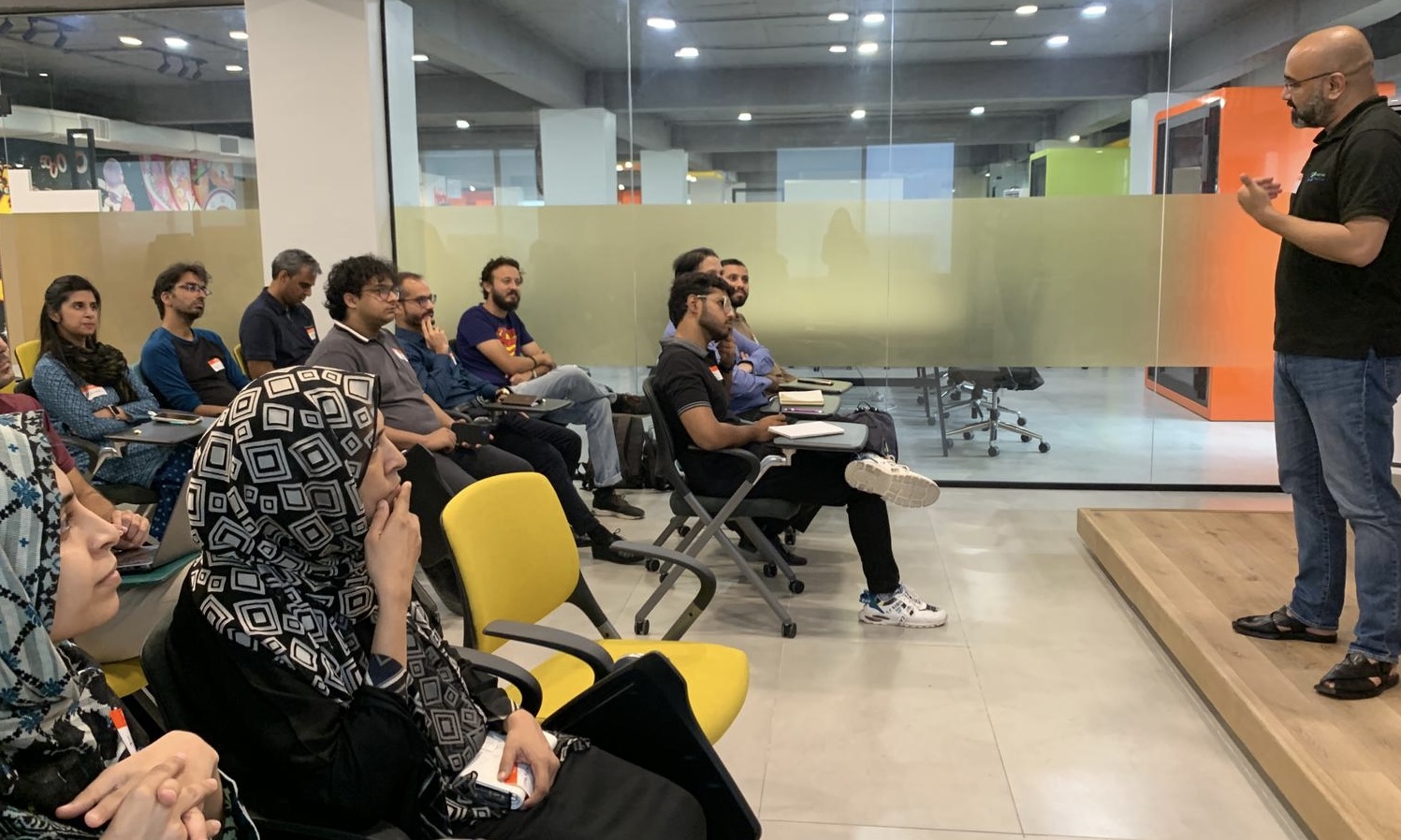
Through the Code for Pakistan (CfP) community, Aimah connected with like-minded individuals and mentors, including Hussain Tawawalla. Tawawalla introduced her to Shireen Halai, a veteran of recycling garbage in Karachi for over 12 years, who now assists in separating wrapper waste for Aimah's projects. Tawawalla is helping Aimah streamline the collection process by coordinating with local vendors and simplifying the wrapper processing for Aimah. She is concurrently developing a community collection model with Tawawalla's help while focusing on social outreach and website development with the CfP team.
Her research took her to the SSWMB ( Sind Solid Waste Management Board), where she learned about an initiative at Haryali Hubs, a joint venture between SSWMB and Tearfund (a UK-based charity) aimed to raise community awareness through their programs and conduct waste separation of Karachi's garbage onsite to salvage recyclable goods. This initiative focused on community awareness, onsite waste segregation for recycling, and transforming organic waste into compost. Unique to their approach was recycling unconventional items; for example, they converted plastic bags into pellets, which were then used to manufacture dustbins.
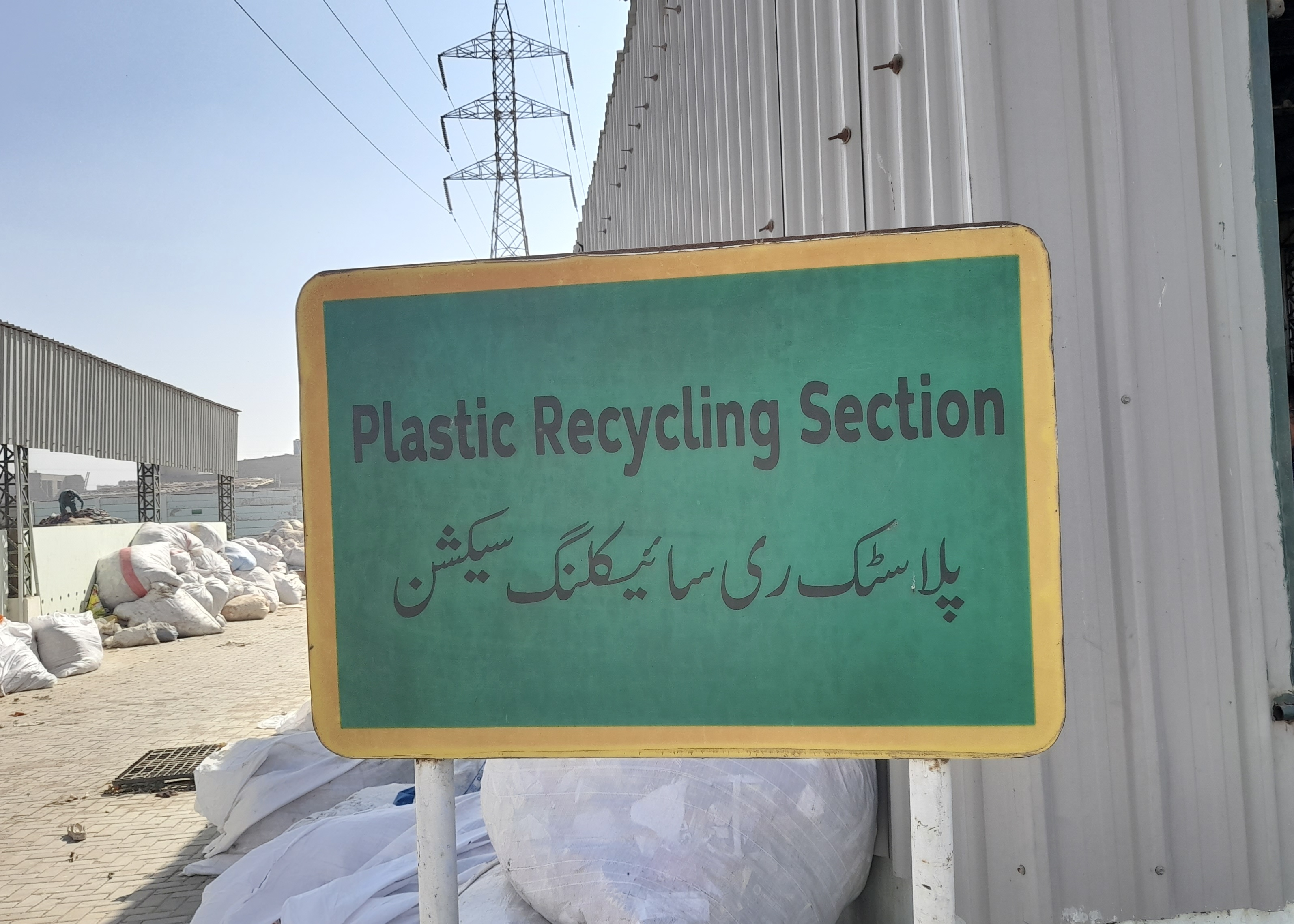
Aimah recently connected with SWEEP, a joint venture with the Government of Sindh and the World Bank, aiming to develop advanced solid waste infrastructure in Karachi. These initiatives are not just about managing waste; their goals are reducing Karachi's carbon footprint and transforming waste into something valuable.
Aimah's journey is not one without challenges. From the pre-production stage of collection to cleaning and drying to the actual production of the products, she is met with several roadblocks. She emphasizes that she wants these products to be just as functional as they are lovely to look at. For that, she is constantly experimenting to refine her designs. An average bag takes up to three months to make, so Aimah is exploring ways to expand her team while, at the same time, collecting more wrappers to help WrapUp expand its scope of work.
Reflecting on the Code for Pakistan's 'Guftugu' event, Aimah recalls Sheba Najmi, Founder of CfP, initiating the dialogue with a poignant question: 'Who is feeling hopeless? But… we can change things.' Inspired by these words, Aimah is keen to implement them: "That's exactly my focus - educating and inspiring hope. It's about concentrating on what we can control. Your trash is your responsibility. I aim to empower communities to find innovative ways to upcycle soft plastic. In today's environmental landscape, everyone has a role to play."
Aimah is playing her part for her wider community in several ways:
- By educating communities and teaching them new skills
- By working with and engaging different organizations on how to handle their garbage more effectively
- By developing a model where residents of Karachi can drop off their recyclable trash at any of the Al Furqan school branches
We all hold the power at an individual level to address the growing mountains of trash that mar Karachi's skyline. Our city's strategic position, bordering the Arabian Sea, accentuates the urgency of our environmental responsibility. As stewards of this vital coastal gateway, our collective actions can significantly impact the preservation of Karachi's unique maritime identity. By consciously reducing and managing our waste, we contribute to the beauty of our city and the health of the sea that defines it.
To learn more about sustainable living, join the conversation- connect with your city's Code for Pakistan volunteer chapter. Share your contributions using #mywastemyresponsibiltymypakistan, and help pave the way for a cleaner city and a greener Pakistan. Get in touch: info@codeforpakistan.org
Written by Amna Zafar